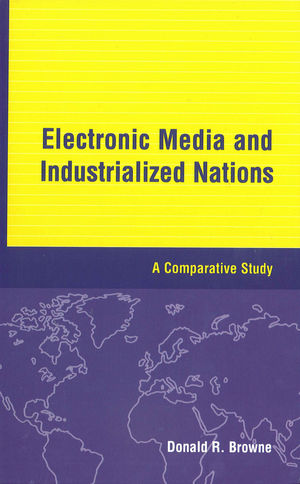Electronic Media and Industrialized Nations: A Comparative StudyISBN: 978-0-8138-0422-4
Hardcover
576 pages
June 1999, Wiley-Blackwell
 This is a Print-on-Demand title. It will be printed specifically to fill your order. Please allow an additional 10-15 days delivery time. The book is not returnable.
|
||||||
Browne readily acknowledges his own biases. He makes it
abundantly clear that he believes those who regulate, administer,
produce, and receive have an obligation to understand how the
electronic media function and how the media should and can follow
standards that will better ensure their responsibility for the
development of healthy societies.
While the present work is based on Browne's award-winning Comparing Broadcast Systems, it goes much further in terms of its coverage of such subjects as government-media relationships, minorities and the media, uses of the Internet, and the possible influence of "media barons," the European Union, and transnational corporations. Where the two Germanys and the Soviet Union/Russia are concerned, he provides an account of the role of the media before, during, and after both German unification and the collapse of the Soviet Union. He also places greater emphasis on how media portrayal of religion, class, language, ethnicity, and political affiliation provide us with images of the relative health of civil society.



